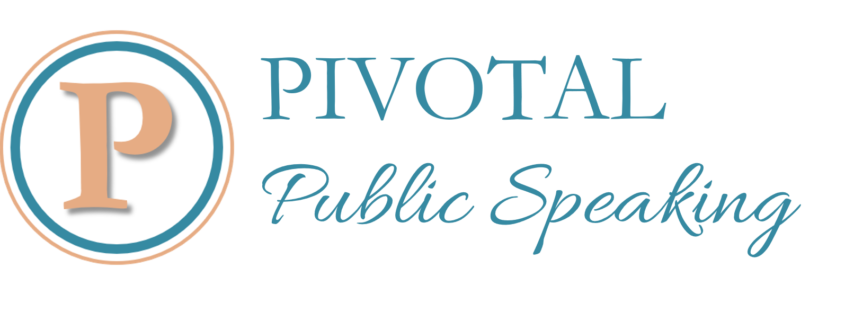Mention impromptu speaking and many people shiver with fear and loathing. Given that many would rather die than give a speech, then to do so “of the cuff” is completely beyond the pale.
Impromptu speaking certainly is speaking “off the cuff” and we often think of it as speaking without preparation. That, I think, is where we go wrong. A great deal of preparation can be put into impromptu speaking. As Mark Twain said, “It usually takes me about three weeks to prepare a good impromptu speech.”
Consider everyday conversation – “Hello, beautiful day isn’t it?” If someone says that to you in passing, you can answer and probably choose from a range of answers, “off the cuff”. Much of your ability there comes from habit combined with thought. If someone asks you about your business or what you do for a living, you can answer, and again choose what to say “off the cuff”. And your ability there comes from habit and from having thought out your marketing or why it is you do what you do.
These are both examples of impromptu speaking and we deal with similar impromptu situations on a regular, frequent basis, usually with success and without too much difficulty.
All we need to do then is apply the same skills to Impromptu speaking in a more formal setting and we have the same achievement.
Generally when we are asked a question, the best thing we can do is talk about what we know and particularly what we know best. Confidence comes from knowing that we are familiar with the information. And because we are familiar with the information we can give more thought to how best to present it.
This works particularly well if you are being asked to talk about your specialty. You can choose what to say, just as you do when you answer a conversational question. You can choose based on your audience what you want to be the result of your talk, and how much time you have.
If, on the other hand, you have been asked your opinion on something you are not familiar with, you will also need to choose from our own knowledge and experience in choosing what to say. The worst case scenario is being asked about something that you know absolutely nothing about. Then it becomes a case of talking about the value of the subject itself rather than its information. You can also talk about why you know nothing about it, that you have no experience of it and why, that you would like to know or need to know more and why, or that you would prefer not to know and why.
So when you are asked to speak, think of your own life and what you know about the subject. Think also about what you feel, and what your opinions are. If you have stories from your life that relate to the subject, it’s highly likely that you can construct a speech around those – and again how they make you feel and how they may have influenced your opinion.
So state an opinion in terms that will engage the audience. Use your experience and knowledge to support two or tree points about that opinion. Conclude with the same statement of opinion, adapted to the new information that you gave and you have quite a powerful completely impromptu speech.
So given that you have a way to access your own experiences and knowledge to create “a few words”, you can set up a mindset of being prepared to speak off the cuff or impromptu. This preparation involves being aware, always, of things you could use in a speech. Be aware of stories happening in your own life and the lives of those around you and those in the news or movies. Be aware of your own experience and life story. Be aware of your own knowledge. It is often broader and deeper than you knew until you catalogue it.
Then you can also collect phrases and ways of saying things that will support you in your presentations. Collect phrases that can stall for time, that can cover for any mishaps during the speech, that can link between ideas, and that can introduce humour. Think of clever or witty ways you could tell your stories, and ways to tell them so that they truly and succinctly support a point.
Now you are prepared to speak seemingly “without preparation”!!
(c) Bronwyn Richie
If you want to incude this article in your publicstion, please do, but only if you include the following information with it:
Bronwyn Ritchie is a professional librarian, a writer, and an award-winning speaker and trainer.
She is a certified corporate trainer and speech contest judge with POWERtalk , a certified World Class Speaking coach, and has had 30 years experience speaking to audiences and training in public speaking. Boost your speaking success, click here for Bronwyn’s FREE 30 speaking tips. Join now or go to http://www.30speakingtips.com




